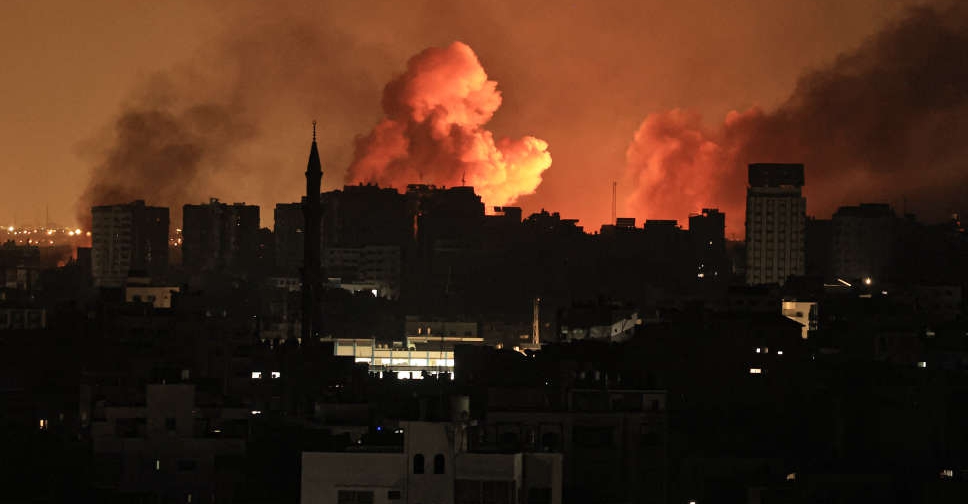
The United Nations Security Council is likely to vote on Tuesday on an Algerian push for the 15-member body to demand an immediate humanitarian ceasefire in the Israel-Hamas war, said diplomats, a move the United States signaled it would veto.
Algeria put forward an initial draft resolution more than two weeks ago. But US Ambassador to the UN Linda Thomas-Greenfield quickly said the text could jeopardise "sensitive negotiations" aimed at brokering a pause in the war.
Algeria requested on Saturday that the council vote on Tuesday, diplomats said. To be adopted, UN Security Council resolution needs at least nine votes in favour and no vetoes by the United States, Britain, France, China or Russia.
"The United States does not support action on this draft resolution. Should it come up for a vote as drafted, it will not be adopted," Thomas-Greenfield said in a statement on Saturday.
Washington traditionally shields its ally Israel from UN action and has already twice vetoed council action since October 7. But it has also abstained twice, allowing the council to adopt resolutions that aimed to boost humanitarian aid to Gaza and called for urgent and extended humanitarian pauses in fighting.
Talks between the US, Egypt, Israel and Qatar are on to seek a pause in the war and the release of hostages held by Hamas.
"It is critical that other parties give this process the best odds of succeeding, rather than push measures that put it - and the opportunity for an enduring resolution of hostilities - in jeopardy," Thomas-Greenfield said.
The Gaza war began when fighters from the Hamas group that runs Gaza attacked Israel on October 7, killing 1,200 people and capturing 253 hostages, according to Israeli tallies. In retaliation, Israel launched a military assault on Gaza that health authorities say has killed more than 28,000 Palestinians with thousands more bodies feared lost amid the ruins.
The likely council vote comes as Israel also plans to storm Rafah in southern Gaza, where more than 1 millions Palestinians have sought shelter, prompting international concern that such a move would sharply worsen the humanitarian crisis in Gaza.
"The situation in Gaza is an appalling indictment of the deadlock in global relations," UN Secretary-General Antonio Guterres told the Munich Security Conference on Friday.
When asked to explain, UN spokesman Stephane Dujarric said Guterres was "pointing the finger" at the lack of unity in the Security Council "and how that lack of unity has hampered our ability ... to improve situations around the world".
 UK inquiry finds 'chilling' cover-up of infected blood scandal
UK inquiry finds 'chilling' cover-up of infected blood scandal
 Iranian President Raisi killed in helicopter accident, state media says
Iranian President Raisi killed in helicopter accident, state media says
 ICC prosecutor seeks arrest warrants for Israeli, Hamas leaders
ICC prosecutor seeks arrest warrants for Israeli, Hamas leaders
 Assange given permission to appeal against US extradition
Assange given permission to appeal against US extradition
 Israel intends to broaden Rafah sweep, Defence Minister tells US
Israel intends to broaden Rafah sweep, Defence Minister tells US




